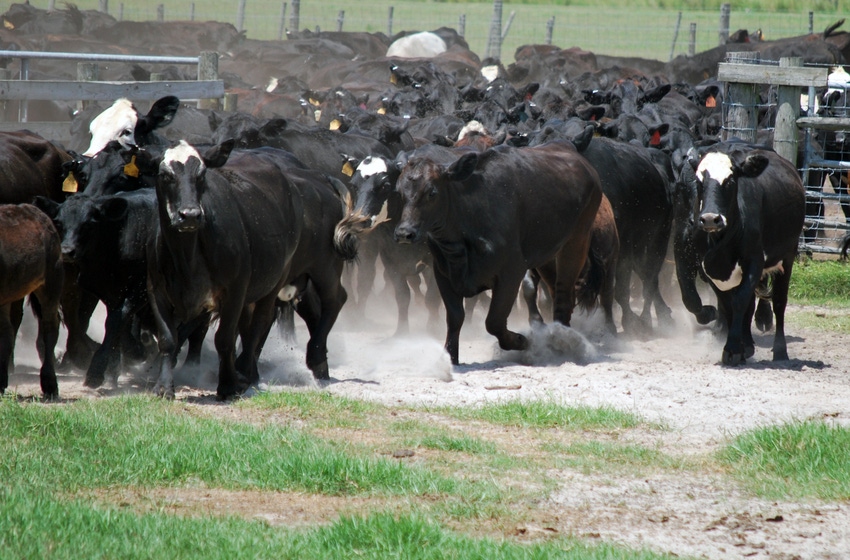June 16, 2017

U.S. beef exports to China must meet specified requirements under the USDA Export Verification Program. These requirements apply to U.S. companies such as slaughterers, fabricators, and/or processors.
U.S. beef was banned from China's market in 2003, but on June 12, the USDA announced U.S. beef was once again on the list of products eligible for export to China.
On the announcement, U.S. Meat Export Federation President and CEO Philip Seng in a written statement said "USMEF is pleased to see these important steps completed that will soon allow U.S. beef shipments to China to resume, ending a suspension that has lasted more than 13 years. We thank our U.S. government officials for their tireless efforts on this issue, and now look forward to exporting U.S. beef to this very important market.”
Seng said the market-opening agreement with China “includes requirements that will involve a period of adjustment for the U.S. industry. Meeting these requirements will add costs and this will mean that U.S. beef is priced at a premium compared to other suppliers in the market. With that said, China holds exciting potential for the U.S. beef industry and for buyers in the market who have waited a very long time for the return of high-quality U.S. beef.”
The specified requirements for exports to China include:
Beef and beef products must be derived from cattle that were born, raised, and slaughtered in the U.S., cattle that were imported from Canada or Mexico and subsequently raised and slaughtered in the U.S., or cattle that were imported from Canada or Mexico for direct slaughter.
Cattle must be traceable to the U.S. birth farm using a unique identifier, or if imported to the first place of residence or port of entry.
Beef and beef products must be derived from cattle less than 30 months of age.
Chilled or frozen bone-in and deboned beef products are eligible for shipment. For a complete listing, refer to the FSIS Export Library.
Carcasses, beef, and beef products must be uniquely identified and controlled up until the time of shipment.
Only eligible products may be issued an FSIS Export Certificate. The Agricultural Marketing Service verifies that cattle meet the specified product requirements through an approved USDA Quality System Assessment or USDA Process Verified Program. These programs ensure that a company’s requirements are supported by a documented quality management system and are verified through audits conducted by AMS.
Craig Uden, president of the National Cattlemen's Beef Association, said "NCBA commends the leadership of President Trump and our skilled negotiators who were able to restore U.S. beef access to China, something that has been a top priority for NCBA for 13 years.
“NCBA worked closely with USDA throughout the entire process. In recent years, China has become one of the largest import markets for beef, and these terms are a reflection of China's trust in the safety and quality of U.S. beef. We hope that by getting our foot in the door we can develop a long lasting and mutually beneficial relationship with China,” Uden said.
China has emerged as a major beef buyer in recent years with imports increasing from $275 million in 2012 to $2.5 billion in 2016, according to the USDA. The United States is the world’s largest beef producer and was the world’s fourth-largest exporter with global sales of more than $5.4 billion in 2016.
Until the ban took effect in 2003 due to some U.S. cases of Bovine spongiform encephalopathy, the U.S. was China’s largest supplier of imported beef, providing 70 percent of the country’s total intake.
As part of the U.S.-China 100-Day Action plan announced May 11 by U.S. Secretary of Commerce Wilbur Ross and Secretary of the Treasury Steven T. Mnuchin, the Trump Administration has taken steps toward commercial shipment of U.S. beef and beef products to China for the first time since 2003.
These shipments are results of the U.S.-China Comprehensive Economic Dialogue co-chaired by Secretary Ross and Secretary Mnuchin for the United States and Vice-Premier Wang Yang for China.
USDA reached agreement with Chinese officials on final details of a protocol to allow the U.S. to begin the beef exports to China.
On announcing the beef deal with China, Secretary of Agriculture Sonny Perdue in a written statement said “Today is a great day for the United States and in particular for our cattle producers, who will be regaining access to an enormous market with an ever-expanding middle class. Since he was elected, President Trump has brought momentum, optimism, and results to American agriculture families that we haven’t seen in years and this agreement is a great example.
“I commend the hard work of Secretary Ross, Secretary Mnuchin, Trade Representative Robert Lighthizer, and our USDA representatives. Without their dedication and persistence, this would have not been possible. I have no doubt that as soon as the Chinese people get a taste of American beef they’ll want more of it.”
About the Author(s)
You May Also Like






